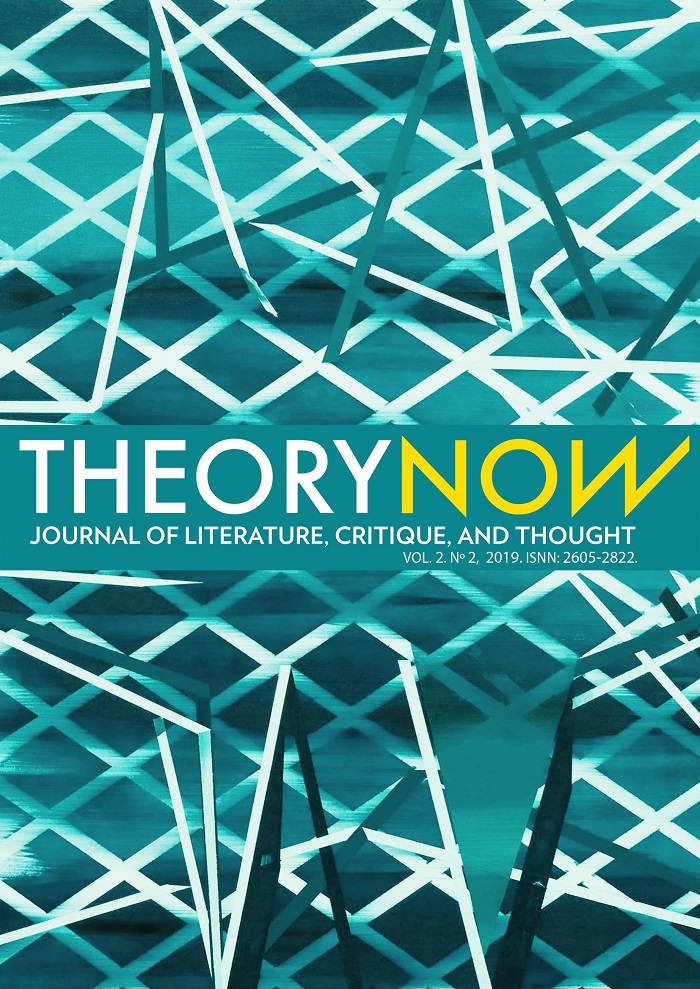On Taitas and Laberintos. The international reception of Borges from a glotopolitical perspective
DOI:
https://doi.org/10.30827/tnj.v2i2.9500Keywords:
orges, criollismo, poetry, Moon across the Way, international receptionAbstract
This contribution is part of a broader project of reflection on the conditions which permit or obstruct the international circulation of literature. In this case, a glotopolitical perspective is used, focusing on the linguistic dimension of the literary phenomenon. In a first step, the article takes up studies that examine the contrast between Jorge Luis Borges’ early stage and the one that begins to take shape from the 1930s onwards. If the former is distinguished by a certain criollismo and an emphasis on poetry and essays, the latter is dominated by the short story, metaphysical labyrinths and a language free of culturemes. Based on these observations, the further analysis focuses on the evolution of the poetry book Moon across the Way (1925), and on the international reception to demonstrate that the only Borges that is transferable to the international circuit –and the only one disseminated in this domain– is the second.Downloads
References
Apter, Emily. “On Translation in a Global Market”. Public Culture, vol. 13 no. 1, 2001, pp. 1-12.
Borges, Jorge Luis. Luna de enfrente. Buenos Aires: Proa, 1925.
___. “Prólogo”. Obras completas, I. Buenos Aires: Emecé, 1969, 57.
___. Gesammelte Werke. Der Gedichte erster Teil. München/Wien: Carl Hansen Verlag, 2006.
Corral, Rose. “Acerca del ‘primer Borges’”. Nueva Revista de Filología Hispánica, T. 42 no. 1, 1994, pp. 151-159.
Damrosch, David. What Is World Literature? Princeton: Princeton University Press, 2003.
Galasso, Norberto. Borges, ese desconocido… Buenos Aires, Ayacucho, 1995.
García, Carlos. “La edición princeps de Fervor de Buenos Aires”. Variaciones Borges: revista del Centro de Estudios y Documentación Jorge Luis Borges, no. 4, 1997, pp. 177-210.
Livon-Grosman, Ernesto. “The Global Appropriation of Jorge Luis Borges: Reconfiguring the Scattered Pieces”. Jorge Luis Borges (1899-1986) as Writer and Social Critic, Gregary J. Racz (ed.), New York: Edwin Mellen Press, 2003. Versión online en https://www.bc.edu/research/elg/trabajos/documents/borges.pdf, consultado 25.05.19.
Louis, Annick. “El Aleph de Roger Caillois en Gallimard o de cómo salir del laberinto”. Literatura latinoamericana mundial. Dispositivos y disidencias, Gustavo Guerrero, Jorge J. Locane, Benjamin Loy y Gesine Müller (eds.), Berlin/Boston: De Gruyter, 2019 (en prensa).
Molloy, Sylvia. La diffusion de la littérature hispano-américaine en France au XX. Siècle. Paris: Pr. Univ. de France, 1972.
Olea Franco, Rafael. El otro Borges. El primer Borges. México/Buenos Aires: El Colegio de México/Fondo de Cultura Económica, 1993.
Séville-Fürnkäs, Daniella. Poetische Relokalisierungen : Jorge Luis Borges' frühe Lyrik. Frankfurt am Main: Peter Lang, 2004.
Siskind, Mariano. “El cosmopolitismo como problema político: Borges y el desafío de la modernidad”. Variaciones Borges: revista del Centro de Estudios y Documentación Jorge Luis Borges, no. 24, 2007, pp. 75-92.
Wijnterp, Lies. “Crear a Borges: los importadores de la obra de Borges en Francia y Estados Unidos”. Una profunda necesidad en la ficción contemporánea: la recepción de Borges en la república mundial de las letras, Brigitte Adriaensen, Meike Botterweg, Maarten Steenmeijer y Lies Wijnterp (eds.), Madrid/Frankfurt am Main: Iberoamericana/Vervuert, 2015.
Downloads
Additional Files
Published
How to Cite
Issue
Section
License
Theory Now. Journal of Literature, Critique, and Thought is an immediate open-access publication which is available at no cost for readers and authors alike. Authors are not charged any kind of fee for the editorial processing of their articles. Reading, downloading, copying, distributing, printing, searching, linking or reusing all published articles for non-commercial uses is allowed on the condition of citing the author, the journal and the editing body. All intellectual material published in this journal is protected under a Creative Commons Attribution-NonCommercial 3.0 Spain license.
Dissemination of the articles in social (Facebook, Twitter, Linkedin, etc.) and scientific networks (ResearchGate, Academia.edu, etc.), public repositories at universities and other institutions, blogs, personal or institutional websites, Google Scholar, ORCID, ResearchID, ScopusID, etc. is strongly encouraged. In all cases, the intellectual property of the articles and any possible monetary profits derived from them belong exclusively to the authors.













